

I’ll be honest. I struggle with the complications of dismantling a system of power, while also being part of that hierarchy—working for one of the nation’s largest community foundations as vice president of Operations and Learning for the Saint Paul & Minnesota Foundations.
But part of dismantling a hierarchy includes taking a closer look at its structure. Dismantling it could be: Who’s in that foundation? Who’s leading that foundation? Who’s doing the work?
Since joining the Foundations in 2016, these are the sort of challenging questions I’ve been grappling with. They also reflect one of three strategies the Saint Paul & Minnesota Foundations have outlined for our new strategic plan. That is, to advocate for equity through a multifaceted approach. The Foundations have a long history in advocating for equity but one area of this work that I’m especially called to in more recent years is the use of narrative change as an equity advocacy tool.
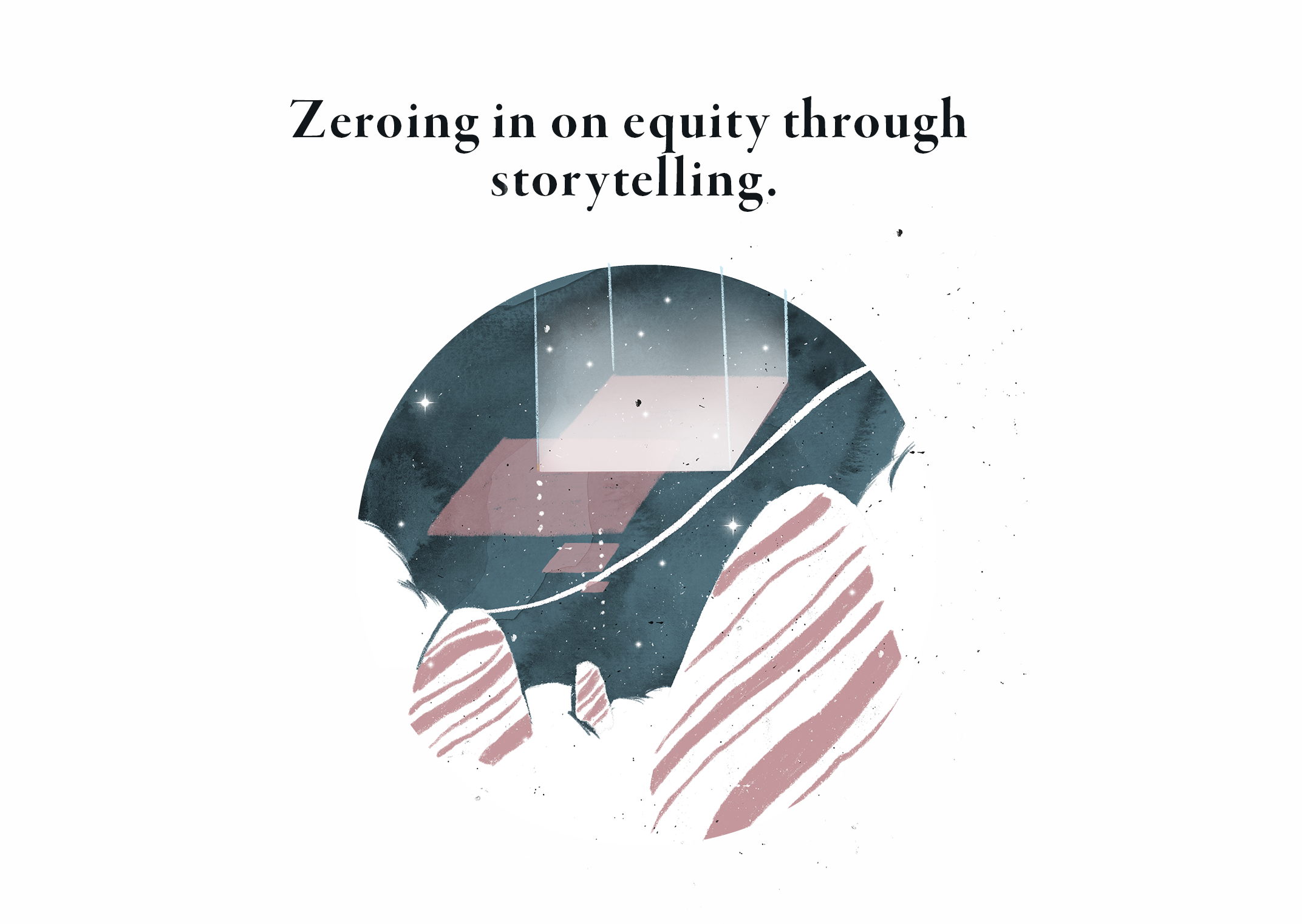
As we’ve focused on narrative change as a component of racial equity, we’ve unpacked pieces of racial inequities: structural racism, microaggressions, and we landed on something that we’ve fundamentally always known. How we tell stories—about ourselves and each other— and the language that is used, the language that’s in the laws, the language that dictates how kids learn in school, those narratives continue to impact the work that we’re doing. We’ve been intentional in starting to lift up the concept of telling the stories that don’t often get told or the voices that don’t often get a platform.
We don’t claim any ownership to those stories, we’re not the ones spreading the light and showing the way, but we do have the privilege of power to help create space, to let stories that have already been in existence, exist more broadly.
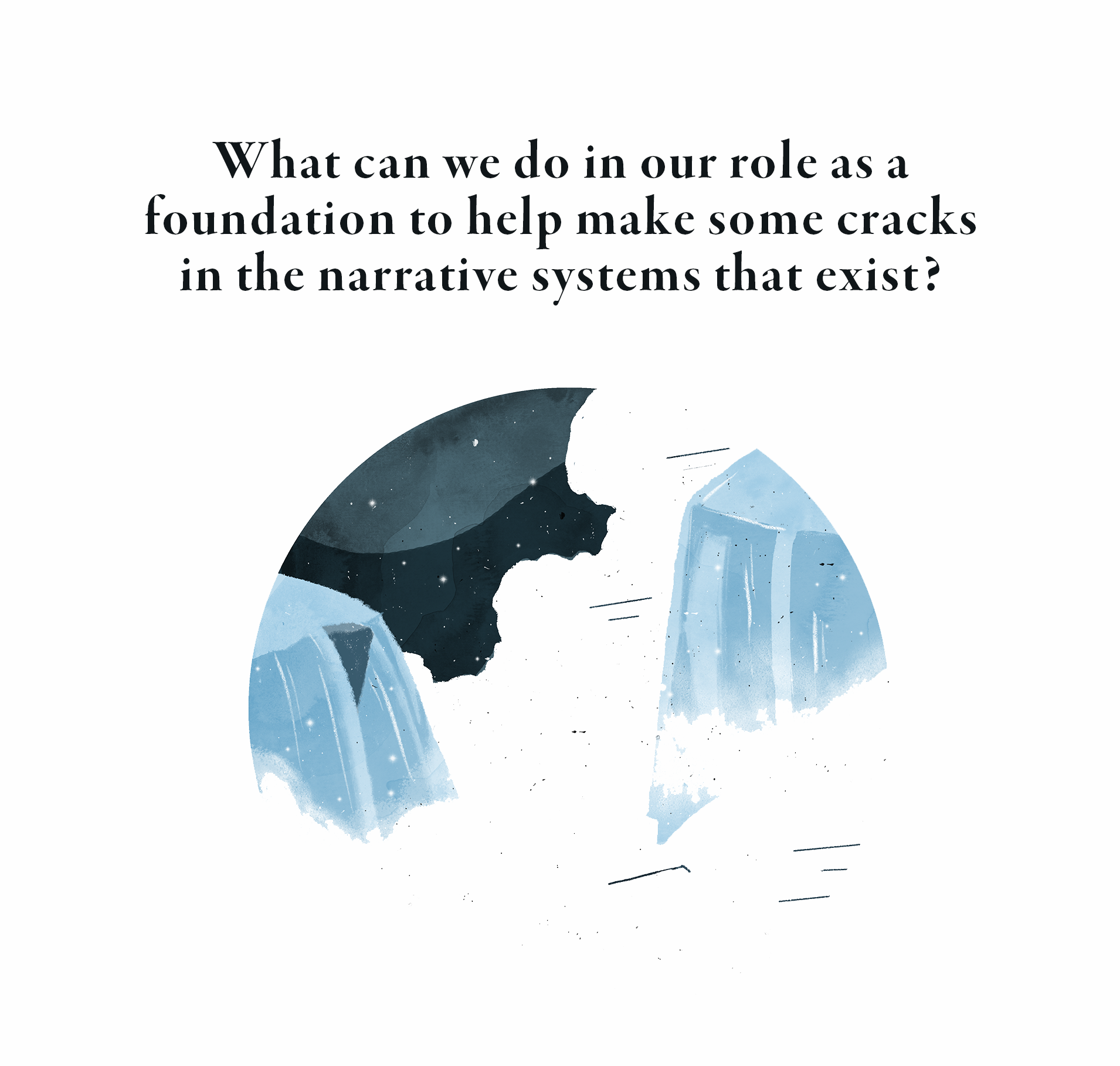
When I think about that balance of power and hierarchy, there’s a recognition that power structures must change. As a community foundation we play a role in that structure. For us, advocating for equity must include lifting up the voices and stories of communities that often don’t have our same access to power and privilege. This is at the core of our commitment to support community-led solutions.
Before we invest in solution, we want to know: Were the beneficiaries of the project part of informing that work? Were they at the table? Who set the agenda? Who decided that whatever is being done is what is needed? We want to see the beneficiaries represented. What we don’t want to see is solutions being visited upon communities that didn’t ask for those solutions. Then we look at who forms the work and ask if that organization represents the community that they’re serving: in their board, leadership and staff structures. Communities are in the best position to identify their needs and always have been, but they just have not been given that space and funding.
One recent grantee illustrates a creative pathway into this approach of narrative change combined with community-led solutions. SEEN is a project led by We Are All Criminals in partnership with the Minnesota Prison Writers Workshop, men and women currently incarcerated in Minnesota’s state prisons. It collects portraits, audio, written works, and videos of people in prison. The project is designed to share the voice and humanity of individuals in Minnesota prisons and to invite viewers of these creative projects to “see” those incarcerated as fellow human beings defined, not just by their mistakes.
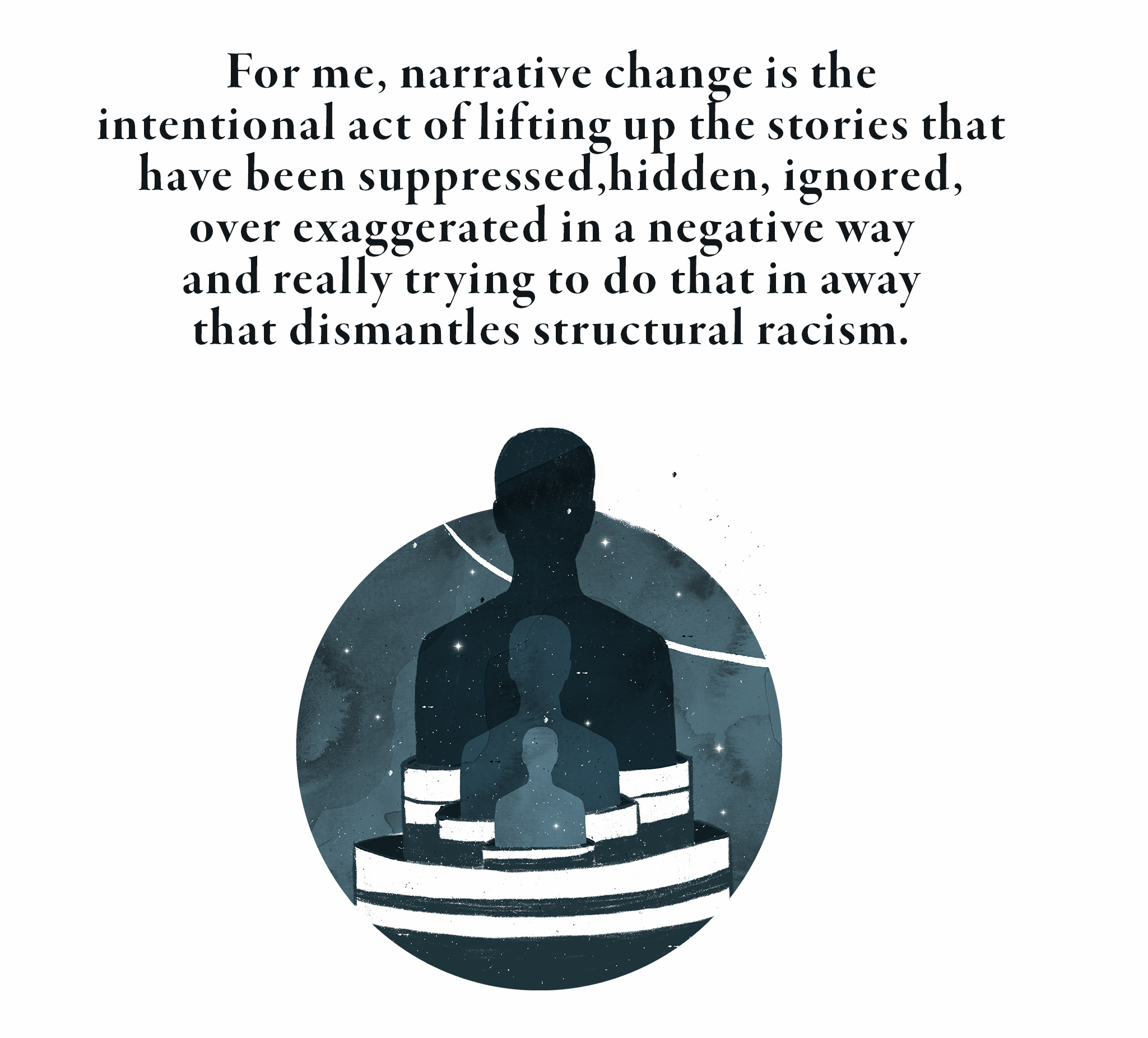
A key strategy towards this at the Foundations is our annual Facing Race Awards. For the past thirteen years, this community-based award celebrates the antiracism work of individuals and organizations across Minnesota unpacking the narratives of a community.
Facing Race Awards
Now it’s up to us, all of us, to celebrate, lift up, and propel forward those who have been long championing the narratives of our complex past and our hopeful future.
Narrative change is an integral part of advocating for equity and the honorees of the Facing Race Awards are individuals who do just that.
Join us on Thursday, September 19 to hold space for the stories that surround us and influence our daily interactions. The stories that inform how we see, or believe that we understand people.
During this evening of recognition and reflection, we’ll hear from keynote Ruth Buffalo—whose election in 2018 made history as she became the first Native American woman elected to North Dakota’s legislature, overcoming an opponent who had passed a voter ID law that made it harder for Native Americans to vote.
And we’ll celebrate the remarkable 2019 Facing Race Honorees: Tuleah Palmer & Reverend Gloria Roach Thomas. Tickets are still available and I hope you’ll join us in changing the narrative—a necessary part of the journey towards advocating for equity.
2019 Facing Race Award Honorees
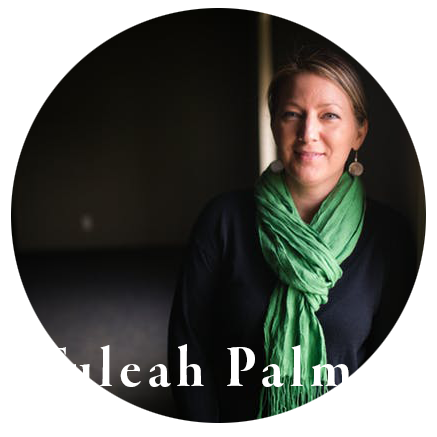
Tuleah Palmer is the daughter of Sid Palmer and Jill Abernathy. Her father was a lifelong resident of Ball Club and descends from the Nipissing Nation in Ontario and her mother is a lifelong advocate of social justice. Tuleah resides in Cass Lake, Minnesota, and is the mother of a blended Anishinaabe family of 7 children, ages 3 to 22. Tuleah has spent her life and career working toward better: better after school programs, better youth development, improved public health outcomes, education, career pathways, basic needs, accessibility, policy change, racial equity and inclusion. She serves as the executive director of Northwest Indian Community Development Center. Her career has weaved itself through many community organizing projects and programs that have made significant changes in people’s lives for better. She serves on the Governor’s Workforce Board, Racial Equity Committee, DHS American Indian Workforce Development Initiative, DHS Mental Health Innovations Board, MDH & Wilder Healthcare Equity Leadership Team. She served as an Americorps VISTA after completing BSU as a first generation college graduate. Informally, she is claimed by her community and trusted to navigate complex narratives with truth and integrity. She believes leadership is about knowing when and how to act and creating space for others to stand in truth and justice.
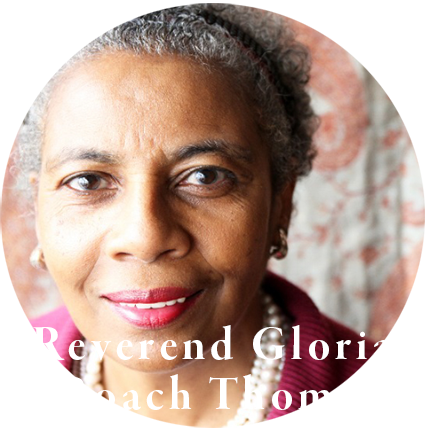
In July 2018, after 20 years of pastoring and 25 years working prior to pastoring, Reverend Gloria Roach Thomas retired. As a pastor, she served Brooklyn United Methodist Church in Brooklyn Center and Camphor Memorial United Methodist Church in Saint Paul. Prior to ordained ministry and pastoring, she worked in non-profit management. It was during these years that she began to finding her ‘voice’ in working with equity issues, which led her to advocacy and work to reduce the impact of racial disparities. She continues to teach ‘Death and Dying Across Cultures and Religions’ as an adjunct Teaching Specialist at the University of Minnesota in the Mortuary Science Program in the School of Medicine. She also works with “Fiscally Fit,” a program working to eliminate economic disparities by fostering financial health and wellness. She holds bachelor’s and master’s degrees in Education from Winthrop University in South Carolina. She also holds a Master of Divinity from United Theological Seminary of the Twin Cities. A native of South Carolina, she has resided in Minnesota for 43 years.
Contributors

